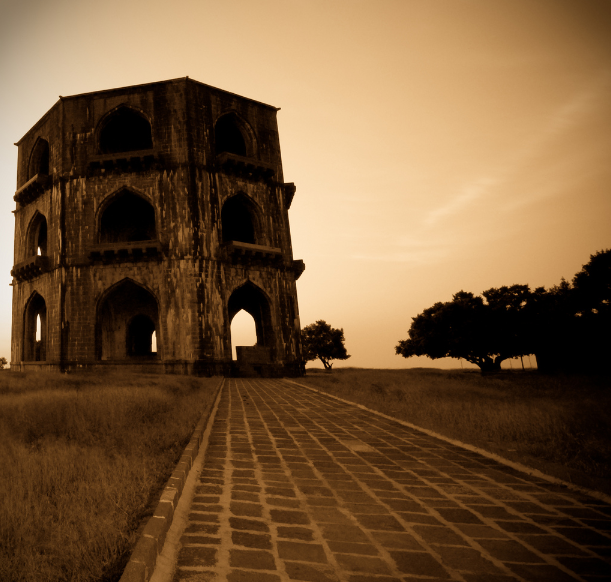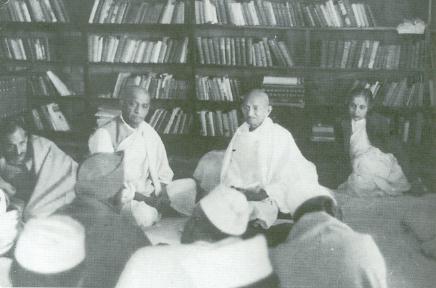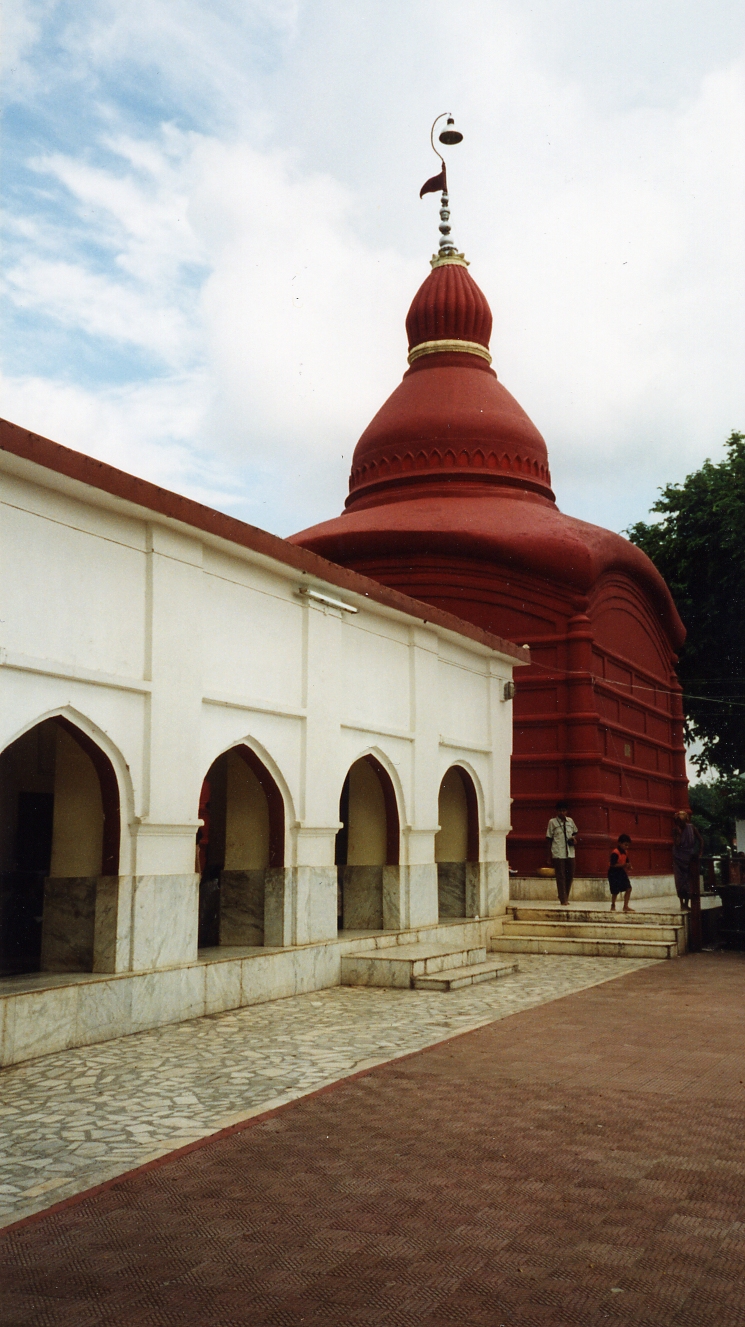|
Pattabhi Sitaramaiah
Bhogaraju Pattabhi Sitaramayya (24 November 1880 – 17 December 1959) was an Indian independence activist and political leader in the state of Andhra Pradesh. He was also the first governor (1 November 1956 – 13 June 1957) of Madhya Pradesh. Early life and education Born in Gundugolanu village, Krishna district (now part of Eluru district) in Andhra Pradesh to a Telugu Niyogi Brahmin family, Pattabhi graduated from the Madras Christian College, fulfilled his ambition to become a medical practitioner by securing a M.B.C.M. degree. Career Medical and early political career He started his practice as a doctor in the coastal town of Machilipatnam, headquarters of Krishna District and the political centre of Andhra. He left his lucrative practice to join the freedom fighting movement. During the years 1912–13, when there was a great controversy over the desirability of forming a separate province for Andhra, he wrote a number of articles in "The Hindu" and other journals exp ... [...More Info...] [...Related Items...] OR: [Wikipedia] [Google] [Baidu] |
Ravishankar Shukla
Ravishankar Shukla (2 August 1877 — 31 December 1956) was a leader of the Indian National Congress, Indian independence movement activist, the Premier of the Central Provinces and Berar from 27 April 1946 to 25 January 1950, first Chief Minister of the reorganised Madhya Pradesh state from 1 November 1956 until his death on 31 December 1956, he was elected from Saraipali, Madhya Pradesh now part of the state of Chhattisgarh. He also served as Member of Constituent Assembly of India from Central Provinces and Berar. Early life Pandit Ravi Shankar Shukla was born to Pandit Jagganath Shukla (1854–1924) and Tulsi Devi (1856–1941) on 2 August 1877, at Sagar in the Central Provinces of British India. Born into a wealthy Saryupareen Brahmin family, his father and grandfather were rich and scholarly. His father, Pandit Jagganath Shukla, came of a family which had resisted British rulers for three generations and his mother, Tulsi Devi, was industrious and a capable manager. Yo ... [...More Info...] [...Related Items...] OR: [Wikipedia] [Google] [Baidu] |
Niyogi
Niyogi Brahmin is a Telugu Brahmin subcaste native to the Indian States of Andhra Pradesh and Telangana, but are spread throughout South India and Maharashtra. The traditional occupations of the Niyogi Brahmins are settled cultivation and priest hood. But majority of them took up various secular vocations including military activities and patwaris. They were associated with administration, economics, literature, music composing, politics, scholarly, scientific, engineering, defense and warfare careers. Etymology The word ''Niyogi'' is derived from Yoga, which in this context means "religious contemplation", as opposed to Yaga, which means "religious sacrifice". ''Niyogin'' in Sanskrit also means "employed", "appointed" or "assigned" and it is probable that Niyogis were given this name because they accept secular employment.Hopkins, Religions of India, p. 192 states: "As to the fees, the rules are precise, and the propounders of them are unblushing." See also * Telugu ... [...More Info...] [...Related Items...] OR: [Wikipedia] [Google] [Baidu] |
Ahmednagar
Ahmednagar (), is a city located in the Ahmednagar district in the state of Maharashtra, India, about 120 km northeast of Pune and 114 km from Aurangabad. Ahmednagar takes its name from Ahmad Nizam Shah I, who founded the town in 1494 on the site of a battlefield where he won a battle against superior Bahamani forces. It was close to the site of the village of Bhingar. With the breakup of the Bahmani Sultanate, Ahmad established a new sultanate in Ahmednagar, also known as Nizam Shahi dynasty. Ahmednagar has several dozen buildings and sites from the Nizam Shahi period. Ahmednagar Fort, once considered almost impregnable, was used by the British to house Jawaharlal Nehru (the first prime minister of India) and other Indian Nationalists before Indian independence. A few rooms there have been converted to a museum. During his confinement by the British at Ahmednagar Fort in 1944, Nehru wrote the famous book '' The Discovery of India''. Ahmednagar is home to the Indian ... [...More Info...] [...Related Items...] OR: [Wikipedia] [Google] [Baidu] |
Quit India Movement
The Quit India Movement, also known as the August Kranti Movement, was a movement launched at the Bombay session of the All India Congress Committee by Mahatma Gandhi on 8th August 1942, during World War II, demanding an end to British rule in India. After the failure of the Cripps Mission to secure Indian support for the British war effort, Gandhi made a call to ''Do or Die'' in his Quit India movement delivered in Bombay on 8 August 1942 at the Gowalia Tank Maidan. The All India Congress Committee launched a mass protest demanding what Gandhi called "An Orderly British Withdrawal" from India. Even though it was at war, the British were prepared to act. Almost the entire leadership of the Indian National Congress was imprisoned without trial within hours of Gandhi's speech. Most spent the rest of the war in prison and out of contact with the masses. The British had the support of the Viceroy's Council, of the All India Muslim League, the Hindu Mahasabha, the princely states ... [...More Info...] [...Related Items...] OR: [Wikipedia] [Google] [Baidu] |
Congress Working Committee
The Congress Working Committee (CWC) is the executive committee of the Indian National Congress. It was formed in December 1920 at Nagpur session of INC which was headed by C. Vijayaraghavachariar. It typically consists of fifteen members elected from the All India Congress Committee. It is headed by the Working President. The Working Committee has had different levels of power in the party at different times. In the period prior to Indian independence in 1947, the Working Committee was the centre of power, and the Working President was frequently more active than the Congress President. In the period after 1967, when the Congress Party split for the first time (between factions loyal to Indira Gandhi and those led by the Syndicate of regional leaders including Kamaraj, Prafulla Chandra Sen, Ajoy Mukherjee, and Morarji Desai), the power of the Working Committee declined; but Indira Gandhi's triumph in 1971 led to a re-centralisation of power away from the states and the All- ... [...More Info...] [...Related Items...] OR: [Wikipedia] [Google] [Baidu] |
Telugu People
Telugu people ( te, తెలుగువారు, Teluguvāru), or Telugus, or Telugu vaaru, are the largest of the four major Dravidian ethnolinguistic groups in terms of population. Telugus are native to the Indian states of Andhra Pradesh, Telangana and the Yanam district of Puducherry. A significant number of Telugus also reside in the surrounding Indian states of Karnataka, Tamil Nadu, Maharashtra, Gujarat, West Bengal, Chhattisgarh, Kerala, and Odisha, as well in the union territory of Andaman and Nicobar Islands. Telugus claim descent from the Andhras, from whom the Telugus inherit their ethnonym. Telugu is the fourth most spoken language in India and the 15th most spoken language in the world. Andhra was mentioned in the Sanskrit epics such as Aitareya Brahmana (by some estimates c. 800 BCE). According to Aitareya Brahmana of the Rigveda, the Andhras left North India from the banks of river Yamuna and migrated to South India. They are mentioned at the time of ... [...More Info...] [...Related Items...] OR: [Wikipedia] [Google] [Baidu] |
Tamil People
The Tamil people, also known as Tamilar ( ta, தமிழர், Tamiḻar, translit-std=ISO, in the singular or ta, தமிழர்கள், Tamiḻarkaḷ, translit-std=ISO, label=none, in the plural), or simply Tamils (), are a Dravidian ethno-linguistic group who trace their ancestry mainly to India’s southern state of Tamil Nadu, union territory of Puducherry and to Sri Lanka. Tamils who speak the Tamil Language and are born in Tamil clans are considered Tamilians. Tamils constitute 5.9% of the population in India (concentrated mainly in Tamil Nadu and Puducherry), 15% in Sri Lanka (excluding Sri Lankan Moors), 7% in Malaysia, 6% in Mauritius, and 5% in Singapore. From the 4th century BCE, urbanisation and mercantile activity along the western and eastern coasts of what is today Kerala and Tamil Nadu led to the development of four large Tamil empires, the Cheras, Cholas, Pandyas, and Pallavas and a number of smaller states, all of whom were warring amon ... [...More Info...] [...Related Items...] OR: [Wikipedia] [Google] [Baidu] |
Netaji
Subhas Chandra Bose ( ; 23 January 1897 – 18 August 1945 * * * * * * * * *) was an Indian nationalist whose defiance of British authority in India made him a hero among Indians, but his wartime alliances with Nazi Germany and Imperial Japan left a legacy vexed by authoritarianism,* * anti-Semitism,* * * * * * and military failure.* * * * The honorific Netaji (Hindi: "Respected Leader") was first applied to Bose in Germany in early 1942—by the Indian soldiers of the ''Indische Legion'' and by the German and Indian officials in the Special Bureau for India in Berlin. It is now used throughout India. Subhas Bose was born into wealth and privilege in a large Bengali family in Orissa during the British Raj. The early recipient of an Anglocentric education, he was sent after college to England to take the Indian Civil Service examination. He succeeded with distinction in the vital first exam but demurred at taking the routine final exam, citing nationalism to be a high ... [...More Info...] [...Related Items...] OR: [Wikipedia] [Google] [Baidu] |
Tripura
Tripura (, Bengali: ) is a state in Northeast India. The third-smallest state in the country, it covers ; and the seventh-least populous state with a population of 36.71 lakh ( 3.67 million). It is bordered by Assam and Mizoram to the east and by Bangladesh to the north, south and west. Tripura is divided into 8 districts and 23 sub-divisions, where Agartala is the capital and the largest city in the state. Tripura has 19 different tribal communities with a majority of the Bengali population. Bengali, English and Kokborok are the state's official languages. The area of modern Tripura — ruled for several centuries by the Manikya Dynasty — was part of the Tripuri Kingdom (also known as Hill Tippera). It became a princely state under the British Raj during its tenure, and acceded to independent India in 1947. It merged with India in 1949 and was designated as a 'Part C State' ( union territory). It became a full-fledged state of India in 1972. Tripura lies in ... [...More Info...] [...Related Items...] OR: [Wikipedia] [Google] [Baidu] |
Netaji Subash Chandra Bose
Subhas Chandra Bose ( ; 23 January 1897 – 18 August 1945 * * * * * * * * *) was an Indian independence movement, Indian nationalist whose defiance of British raj, British authority in India made him a hero among Indians, but his wartime alliances with Nazi Germany and Empire of Japan, Imperial Japan left a legacy vexed by authoritarianism,* * anti-Semitism,* * * * * * and military incompetence, military failure.* * * * The honorific Netaji (Hindi: "Respected Leader") was first applied to Bose in Germany in early 1942—by the Indian soldiers of the ''Indische Legion'' and by the German and Indian officials in the Special Bureau for India in Berlin. It is now used throughout India. Subhas Bose was born into wealth and privilege in a large Bengali people, Bengali family in Orissa during the British Raj. The early recipient of an Anglocentric education, he was sent after college to England to take the Indian Civil Service examination. He succeeded with distinction in the ... [...More Info...] [...Related Items...] OR: [Wikipedia] [Google] [Baidu] |
Mohandas Gandhi
Mohandas Karamchand Gandhi (; ; 2 October 1869 – 30 January 1948), popularly known as Mahatma Gandhi, was an Indian lawyer, anti-colonial nationalist Quote: "... marks Gandhi as a hybrid cosmopolitan figure who transformed ... anti-colonial nationalist politics in the twentieth-century in ways that neither indigenous nor westernized Indian nationalists could." and political ethicist Quote: "Gandhi staked his reputation as an original political thinker on this specific issue. Hitherto, violence had been used in the name of political rights, such as in street riots, regicide, or armed revolutions. Gandhi believes there is a better way of securing political rights, that of nonviolence, and that this new way marks an advance in political ethics." who employed nonviolent resistance to lead the successful campaign for India's independence from British rule, and to later inspire movements for civil rights and freedom across the world. The honorific '' Mahātmā'' ( Sans ... [...More Info...] [...Related Items...] OR: [Wikipedia] [Google] [Baidu] |
Bal Gangadhar Tilak
Bal Gangadhar Tilak (; born Keshav Gangadhar Tilak (pronunciation: eʃəʋ ɡəŋɡaːd̪ʱəɾ ʈiɭək; 23 July 1856 – 1 August 1920), endeared as Lokmanya (IAST: ''Lokmānya''), was an Indian nationalist, teacher, and an independence activist. He was one third of the Lal Bal Pal triumvirate. Tilak was the first leader of the Indian independence movement. The British colonial authorities called him "The father of the Indian unrest". He was also conferred with the title of " Lokmanya", which means "accepted by the people as their leader". Mahatma Gandhi called him "The Maker of Modern India". Tilak was one of the first and strongest advocates of Swaraj ('self-rule') and a strong radical in Indian consciousness. He is known for his quote in Marathi: "Swaraj is my birthright and I shall have it!". He formed a close alliance with many Indian National Congress leaders including Bipin Chandra Pal, Lala Lajpat Rai, Aurobindo Ghose, V. O. Chidambaram Pillai and Muhammad Ali J ... [...More Info...] [...Related Items...] OR: [Wikipedia] [Google] [Baidu] |








